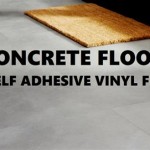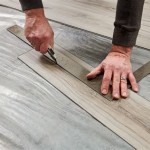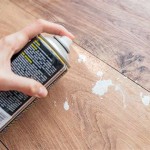Essential Aspects of Luxury Vinyl Plank Flooring Installation On Concrete
Luxury vinyl plank (LVP) flooring has become increasingly popular due to its durability, affordability, and stylish appearance. When installed on concrete, LVP can add value and enhance the aesthetics of any space. However, proper installation is crucial to ensure optimal performance and longevity of the flooring. Here are some essential aspects to consider for LVP flooring installation on concrete:
1. Subfloor Preparation
A smooth and level concrete subfloor is essential for a successful LVP installation. Inspect the subfloor for any cracks, unevenness, or debris and repair them accordingly. Use a concrete patch or leveler to fill any imperfections and allow it to cure thoroughly before proceeding with the installation.
2. Moisture Control
Concrete can retain moisture, which can damage LVP flooring. Install a vapor barrier, such as polyethylene sheeting, on top of the concrete to prevent moisture vapor from seeping through and affecting the flooring.
3. Underlayment
An underlayment is recommended to provide additional sound insulation, moisture protection, and support for the LVP flooring. Choose an underlayment designed specifically for LVP flooring and follow the manufacturer's instructions for installation.
4. Plank Alignment and Spacing
Start the installation in a corner of the room and work your way out. Align the planks carefully, ensuring that the edges interlock securely. Use a tapping block or a rubber mallet to gently tap the planks into place. Maintain a consistent spacing between the planks to prevent buckling or warping.
5. Expansion Gaps
Leave a small expansion gap around the perimeter of the room and around any fixed objects, such as walls, cabinets, or columns. This gap allows the flooring to expand and contract with changes in temperature and humidity, preventing buckling or cracking.
6. Trimming and Edging
Once the LVP flooring is installed, trim any excess material around the perimeter of the room using a utility knife or a trimming tool. Install baseboards or quarter rounds to cover the expansion gaps and enhance the finished look.
7. Cleaning and Maintenance
After installation, clean the LVP flooring thoroughly with a damp mop and a mild cleaning solution. Regular cleaning with a pH-neutral cleaner and a microfiber mop will help maintain the flooring's appearance and extend its lifespan. Avoid using abrasive cleaners or harsh chemicals that can damage the finish of the planks.
Conclusion
By following these essential aspects, you can ensure a successful LVP flooring installation on concrete. Proper subfloor preparation, moisture control, underlayment installation, precise alignment, expansion gaps, trimming, and ongoing maintenance will contribute to the durability, comfort, and aesthetic appeal of your new flooring. Remember to consult the manufacturer's instructions specific to the LVP product you are using for optimal results.

Tips For Installing Vinyl Plank Over Concrete Floors Lemon Thistle

How To Prepare A Concrete Floor For Vinyl Flooring Parrys

How To Install Vinyl Or Laminate Floors In A Basement Over Concrete Slab

Lvp Flooring Installation How To Install Luxury Vinyl Plank In A Basement Diy

How To Install Vinyl Or Laminate Floors In A Basement Over Concrete Slab

Easy Ways To Install Vinyl Plank Flooring On Concrete

Tips For Installing Vinyl Plank Over Concrete Floors Lemon Thistle

How To Install L And Stick Vinyl Plank Flooring Floor Preparation

10 Beginner Mistakes Installing Vinyl Plank Flooring

Tips For Installing Vinyl Plank Over Concrete Floors Lemon Thistle
See Also







